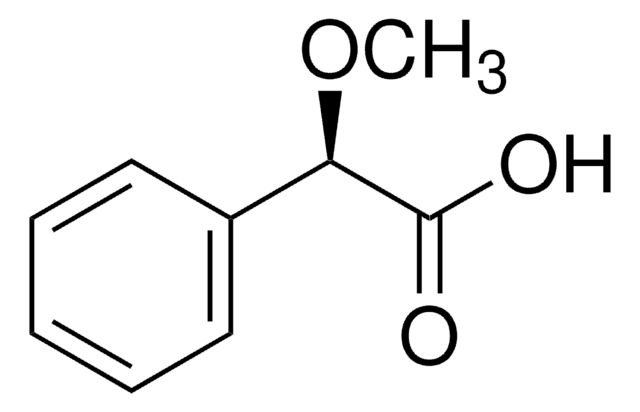251003
2-Bromo-3-methylbutyric acid
97%
Synonym(s):
α-Bromoisovaleric acid, 2-Bromoisovaleric acid
About This Item
Recommended Products
Quality Level
Assay
97%
form
solid
bp
124-126 °C/20 mmHg (lit.)
mp
39-42 °C (lit.)
solubility
alcohol: soluble(lit.)
diethyl ether: soluble(lit.)
water: very slightly soluble(lit.)
functional group
bromo
carboxylic acid
SMILES string
CC(C)C(Br)C(O)=O
InChI
1S/C5H9BrO2/c1-3(2)4(6)5(7)8/h3-4H,1-2H3,(H,7,8)
InChI key
UEBARDWJXBGYEJ-UHFFFAOYSA-N
Looking for similar products? Visit Product Comparison Guide
Related Categories
General description
Application
Signal Word
Danger
Hazard Statements
Precautionary Statements
Hazard Classifications
Acute Tox. 4 Oral - Skin Corr. 1B
Storage Class Code
8A - Combustible corrosive hazardous materials
WGK
WGK 3
Flash Point(F)
224.6 °F - closed cup
Flash Point(C)
107 °C - closed cup
Personal Protective Equipment
Choose from one of the most recent versions:
Certificates of Analysis (COA)
Don't see the Right Version?
If you require a particular version, you can look up a specific certificate by the Lot or Batch number.
Already Own This Product?
Find documentation for the products that you have recently purchased in the Document Library.
Chromatograms
application for HPLCOur team of scientists has experience in all areas of research including Life Science, Material Science, Chemical Synthesis, Chromatography, Analytical and many others.
Contact Technical Service










